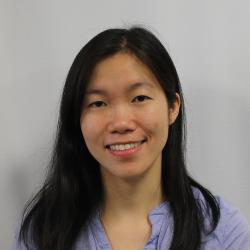
Amy Lee, Ph.D.
Amy S.Y. Lee, Ph.D. received her Ph.D. in Virology at Harvard University in 2012, and then performed postdoctoral research on biochemical and cellular mechanisms of gene regulation at University of California – Berkeley. She joined the faculty in the Department of Biology at Brandeis University in 2016, and subsequently moved to join Harvard Medical School and DFCI in 2020.
The Lee Lab studies how cells sense and respond to environmental signals by modulating protein synthesis. Specifically, the lab’s research is focused on discovering mechanisms regulating specialized mRNA translation and how these pathways are controlled during organismal development, viral infection, and cellular stress. To obtain broad insights into regulation of protein synthesis, the Lee lab applies an integrative approach combining RNA-protein biochemistry, cell-based experiments, structural biology, and development of new sequencing-based technology. Our research provides mechanistic understanding of the translation regulation networks that coordinate the precise control required for correct development and cellular function.
Dana-Farber Cancer Institute
450 Brookline Ave., SM520A
Boston, MA, 02115
Lab telephone: 857-215-1339
Cell
View full abstract on Pubmed
Proc Natl Acad Sci U S A
View full abstract on Pubmed
J Virol
View full abstract on Pubmed
Cell
View full abstract on Pubmed
Microb Pathog
View full abstract on Pubmed
Proc Natl Acad Sci U S A
View full abstract on Pubmed
Cell Microbiol
View full abstract on Pubmed